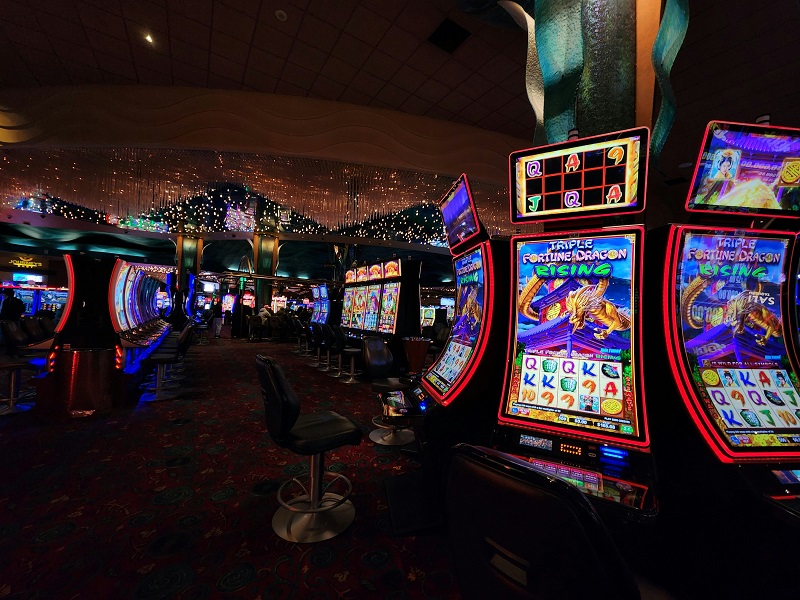Casinos are more than just places to wager money; they are complex psychological environments that tap into the deepest desires and motivations of gamblers. Understanding the psychology of casino gamblers is crucial for both players and operators alike. From the allure of the lights and sounds to the cognitive biases that influence decision-making, there are numerous factors at play that shape the behavior of those who frequent these establishments. In this article, we’ll delve into the intricacies of the psychology of casino gamblers and explore how these insights can inform strategies for both playing and managing casinos.
The Role of Reward and Reinforcement
At the heart of casino gambling lies the concept of reward and reinforcement. The anticipation of a potential win triggers the release of dopamine in the brain, creating a pleasurable sensation that reinforces the behavior of gambling. This dopamine-driven reward system is central to the addictive nature of casino games, as players become increasingly motivated to chase the elusive thrill of a big win. Slot machines, in particular, are designed to exploit this psychological mechanism, with their flashing lights, engaging sound effects, and intermittent rewards creating a hypnotic allure that keeps players coming back for more.
The Influence of Cognitive Biases
Cognitive biases play a significant role in shaping the behavior of casino gamblers, often leading them to make irrational decisions and overestimate their chances of winning. One such bias is the gambler’s fallacy, which leads players to believe that past outcomes influence future events in random games of chance. For example, a player may believe that a roulette wheel is “due” to land on black after a series of reds, despite the odds of each spin being independent of previous outcomes. Additionally, the availability heuristic can lead players to overestimate the likelihood of winning based on vivid or memorable examples of past successes, such as stories of jackpot winners featured on this site.
The Impact of Social and Environmental Factors
Social and environmental factors also play a significant role in influencing the behavior of casino gamblers. The presence of other players and the social atmosphere of the casino can create a sense of camaraderie and excitement that enhances the overall gaming experience. Additionally, environmental factors such as lighting, decor, and music can influence mood and arousal levels, affecting decision-making processes. Casinos strategically design their spaces to create an immersive and stimulating environment that encourages prolonged play and maximizes revenue.
Emotional Regulation and Coping Mechanisms
For many casino gamblers, emotions play a central role in their decision-making processes. Whether it’s the thrill of a win or the disappointment of a loss, emotions can have a profound impact on behavior and decision-making. Some players may engage in emotional regulation strategies, such as distancing themselves from losses or rationalizing their behavior, to cope with the highs and lows of gambling. However, for others, emotions can spiral out of control, leading to impulsive and reckless behavior that can result in significant financial losses.
The Role of Self-Control and Responsible Gaming
Self-control and responsible gaming practices are essential for mitigating the risks associated with casino gambling. While the allure of potential rewards can be intoxicating, it’s important for players to set limits and stick to them. This may involve setting a budget for gambling, taking regular breaks, and seeking support if gambling becomes problematic. Likewise, casino operators have a responsibility to promote responsible gaming practices and provide resources for players who may be struggling with addiction. By fostering a culture of responsible gaming, casinos can help ensure that gambling remains an enjoyable and safe activity for all.
Conclusion
The psychology of casino gamblers is a fascinating and complex subject that encompasses a wide range of factors, from the influence of reward and reinforcement to the impact of cognitive biases and social factors. By understanding these psychological mechanisms, both players and operators can make more informed decisions that promote responsible gaming practices and enhance the overall casino experience. Whether it’s recognizing the allure of intermittent rewards or practicing emotional regulation strategies, mastering the psychology of casino gambling is essential for navigating the complex world of casinos with clarity and control.
Ready to put your knowledge of the psychology of casino gamblers into practice? Remember to gamble responsibly and stay mindful of the psychological factors at play while enjoying your favorite casino games.
